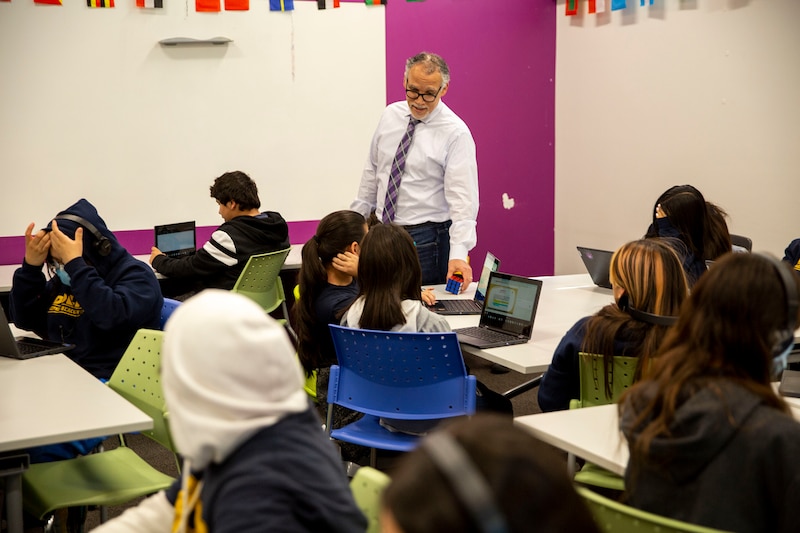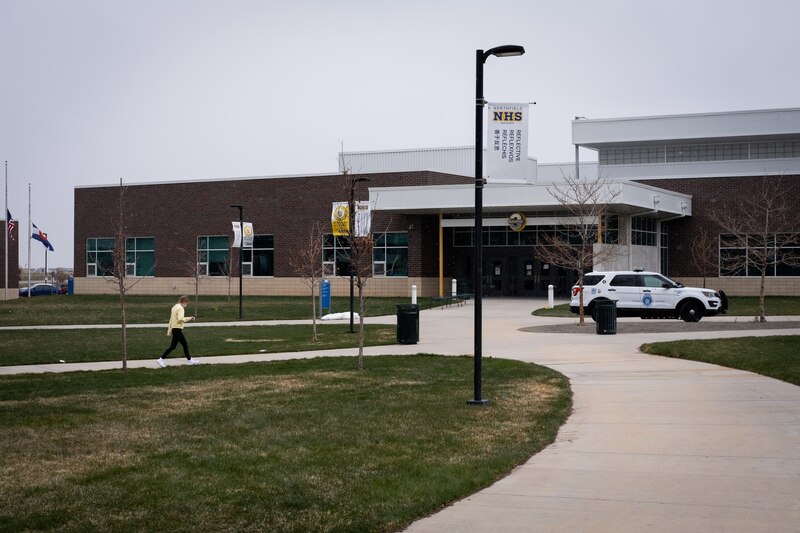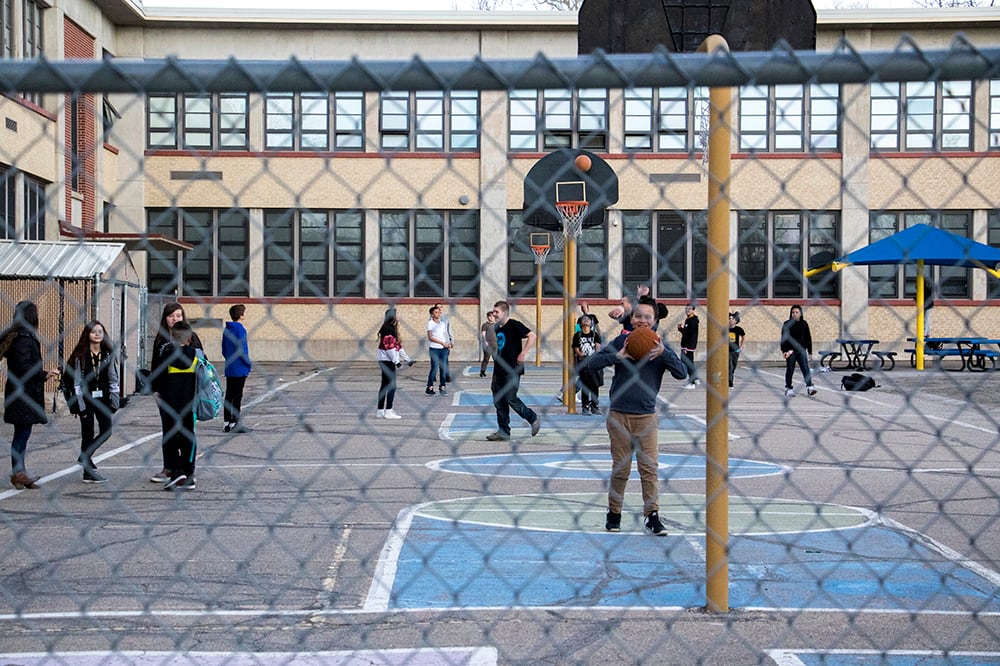Innovation zones are an invention of Denver’s education reform era that grant traditional public schools some of the same flexibility and freedom enjoyed by charter schools.
A new Denver Public Schools board and administration is less supportive of these experiments in school autonomy, and the future of some zones is in doubt.
Superintendent Alex Marrero is recommending the school board dissolve one of the zones, Beacon Network Schools, and delay approval for the Northeast Denver Innovation Zone, or NDIZ, until district officials can be sure its plan aligns with district policy.
Meanwhile, NDIZ is losing its largest school, Northfield High, after teachers there overwhelmingly rejected an innovation plan they feared threatened their contract rights and then voted Thursday to leave the zone. Northfield is the third school to leave the zone in two years.
Innovation zones are groups of semi-autonomous schools known as innovation schools. The idea behind innovation schools is that freeing them from rules, laws, and teachers union contract provisions allows them to do things they believe will help student learning.
For example, one school extends each school day by seven minutes, which lets it hold extra teacher training days while still giving students the legally required amount of instruction. Others hire non-licensed teachers for gardening classes or after-school Spanish programs. Many innovation schools start hiring teachers before the district’s hiring cycle, giving them first pick.
The idea behind innovation zones is that freeing schools from district management allows for more tailored support for principals and for idea-sharing among like minded schools.
Denver Public Schools has three innovation zones. The oldest, the Luminary Learning Network founded in 2016, appears to be going strong. But the other two face challenges.
The challenges come after a difficult three years for innovation zones, which a former school board member once called “one of the most exciting things we’ve done.”
A union-backed school board paused approving new innovation schools and expanding zones, then imposed limits on freedoms that innovation school leaders said made their schools work for students. School board members said their aim was to expand job protections for teachers who previously waived them to work at innovation schools.
Innovation zones account for 12 schools and 7,200 students, a small portion of Denver’s 88,000 students. But observers say the recent challenges are yet another sign that political winds have shifted in DPS, which was once known nationwide as a model of education reform.
“I would call it adversarial,” Eliot Lewis, chair of the Beacon Network Schools zone board of directors and a former Beacon parent, said of the new administration’s relationship to zones. “For reasons we can’t fathom, they’re against it.”
Who works for whom?
In November, Alex Magaña, executive director of the Beacon Network Schools zone, said he met with Marrero to talk about adding another school to the zone — a request the school board had rejected the year before.
Magaña said Marrero told him he wouldn’t support the Beacon zone at all because of its current employment structure. Magaña and Lewis said district officials gave them two choices: Dissolve the Beacon zone and revert Magaña to district supervision, or have Magaña resign as a district employee to work for the zone, a move that could reduce his pension benefits.
“I was dumbfounded,” Magaña said.
Unlike the two other innovation zones, where the executive directors work for the zones, Magaña is a district employee and the zone reimburses the district for his salary.
Beacon’s structure goes back to the zone’s origins, when Magaña moved from being the principal at Grant Middle School, where test scores were improving, to oversee both Grant and struggling Kepner Middle School. In 2018, when the two schools became a new innovation zone, then-Superintendent Tom Boasberg allowed Magaña to remain a district employee.
But a DPS memo says this arrangement doesn’t allow for proper oversight and “is no longer supported by DPS.”
“Before, you were supported by DPS,” Magaña said. “Now you’re fighting DPS.”

District cites test score concerns
DPS reviews innovation zones every three years. Zones must submit a new innovation plan outlining their structures and goals. Under state law, the school board has options including to approve the plan, revise it in collaboration with the zone, or revoke the zone altogether.
Marrero is recommending the board revoke the Beacon zone at its March 23 meeting. The reasons, as explained at a board meeting last week, are that Kepner Beacon’s test scores are low and that DPS has concerns with the zone’s organizational health, including the employment structure and an accounting issue that’s now been fixed.
Zone supporters wonder if there’s another reason. Magaña testified in support of a bill — opposed by Marrero — that gave innovation zones a limited right of appeal when leaders disagree with school board decisions. The bill is now law.
Shortly after the testimony, Denver Public Schools sent a letter to principals prohibiting them from advocating for proposed state laws during work time if their opinion differs from the district’s position, as was the case with the innovation zone bill.
“I do not have any concrete evidence that this is personal,” said Lewis, chair of the Beacon zone board, “but it sure feels like it is.”
In a statement, Marrero said his recommendation has nothing to do with the innovation zone bill. He recommended unconditional renewal for the Luminary Learning Network, whose executive director and principals also testified in favor of the bill.
District officials pointed to Kepner Beacon’s test scores. Only 21% of students met expectations in reading and writing on state tests last spring, while just 6% met expectations in math.
Seven Denver middle schools scored lower than Kepner Beacon in math. Marrero pointed out that four of them will close at the end of this school year, including STRIVE Prep - Kepner, a charter school that shares the building.
Marrero isn’t recommending Kepner Beacon be closed, but both zone supporters and board members questioned how dissolving the zone would raise test scores.
“If the zone goes away, how does that address the academic outcomes of the students on campus?” board Vice President Auon’tai Anderson asked at the meeting.
“It brings it over to my administration and the resources and expertise we can trust,” Marrero said. Zones, he added, have “blind spots.” Bringing the Beacon schools back under district control allows for “a line of sight” and “the entire organization” behind those schools, he said.

Northfield teachers cite confusion, vote to leave
Marrero is recommending delaying approval of the Northeast Denver Innovation Zone plan until later this spring. District staff said new plans for the four schools within NDIZ — Northfield High, McAuliffe International, McAuliffe Manual, and Swigert International — contain provisions that conflict with new school board policies.
By the time that’s sorted out, the zone will have just three schools.
On Thursday, Northfield teachers voted to leave the zone. According to multiple sources, including an email from a Northfield administrator, only 27% of educators voted to stay in the zone. Teachers had requested the vote. Marrero said he got a petition signed by more than 70 Northfield educators who wrote, “We feel held hostage to the NDIZ.”
Teachers at two elementary schools, Willow and Montclair, voted to leave NDIZ in 2021.
Northfield will remain an innovation school. But it needs a new innovation plan. Earlier this month, Northfield educators overwhelmingly rejected a proposed plan because it contained wording they feared undermined union contract rights now protected by board policy.
NDIZ Executive Director Colleen O’Brien acknowledged that language in the plan that was meant to provide clarity about next steps instead caused confusion, which O’Brien said “unfortunately leads to distrust.”
An email from a Northfield administrator obtained by Chalkbeat says educators now have 10 working days to review a new, non-zone innovation plan for next year before another vote.
“We fully commit to working with educators to ensure that our revised plans reflect the desires of the Northfield community,” Northfield Principal Resident Jessica Rodriguez Bracey wrote.
In a written statement after the vote, O’Brien and NDIZ board members said they respected the Northfield teachers’ decision, and they would work to make the transition as smooth as possible. There would be no immediate changes, but Northfield’s departure could affect the zone’s budget and programming next year.
O’Brien said the smaller zone will still be financially viable, and zone leaders are working with the district to align the remaining schools’ plans with board policy.
“My north star is, what do the educators and community want for children?” O’Brien said. “NDIZ schools are doing their very best to make a really coherent plan for our dreams for our kids.”
Political shift contributes to challenges
Mary Seawell, a former school board president and fierce zone supporter, said all of this — the possible revocation of the Beacon zone, the confusion in NDIZ — feels like evidence of a shift.
She said it seems as though the current board and superintendent don’t understand the purpose of innovation, which she said is to empower educators to design schools that best serve their students. With the exception of Northfield, teachers at the other 11 zone schools voted overwhelmingly to support their school and zone plans.
“I feel worried that we actually have this pretty unique and special set of schools in DPS where the educators are really managing themselves, they are really empowered to figure out the best way to serve their students, and it’s discouraging that no one will take a deep breath and pause and say, ‘Why do teachers want to stay in these schools?’” said Seawell, who is president of Lyra Colorado, which helps innovation zones get outside funding.
Van Schoales, an education policy expert who favors innovation, said he’d describe the shift as going “very much back to a traditional model of one-size-fits-all with the same schedule and the same programming and everybody reporting back up to the superintendent.”
“It’s of no surprise to me that the district is trying to claw back power and control from schools that they think they can,” Schoales said.
Rob Gould, president of the Denver Classroom Teachers Association, sees it differently. He said the school board’s recent policies have strengthened innovation because teachers know they’re not giving away key contract rights when they approve the plans. Even though DPS only has three innovation zones, about a quarter of its schools are innovation schools.
“In the past, it was a top-down creation,” Gould said. “And now it is a bit more bottom-up.”
Anne Rowe, another former school board president who now sits on the NDIZ board, said she wonders to what end. “It does feel like a shift to a new direction,” she said. But she said it’s unclear to her “what the end goal from the district is.”
Melanie Asmar is a senior reporter for Chalkbeat Colorado, covering Denver Public Schools. Contact Melanie at masmar@chalkbeat.org.






